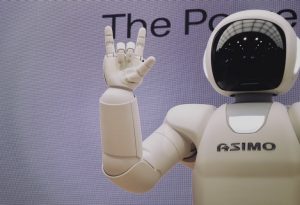Welcome to the world of artificial intelligence in education, where technology and learning come together to create a brighter future! Modern tech develops so fast that it changes nearly everything about real life, including classrooms. Even though AI has increased cases of plagiarism and irresponsible academic behavior, it already contributes as a great educational tool with vast potential. If you’re curious about how AI is changing the way we learn and what it means for you, keep reading – you’re in for an eye-opening adventure!
Definition: What is AI in Education?
AI started entering classrooms a while ago, helping teachers understand what students need to learn and how they’re doing. But before we explore all the amazing things AI can do, let’s start with the basics. We will unravel this tool and how it works step by step.
- What?
AI in education means using computer systems and algorithms to help with tasks that usually need human intelligence. These tasks can include studying, problem-solving, and personalizing the learning experience. But AI can’t replace human assistance, including teachers, tutors, or professional essay writers from academic writing services like CustomWritings. It can’t write an essay for you from scratch.
- Where?
AI used in education can apply to many settings, including schools, colleges, universities, and online learning platforms. It can be relevant in classroom activities, online courses, educational apps, and learning management systems. No matter where or how you’re learning, AI can lend a hand.
- How?
AI offers helpful tools for different study goals and watches how students learn. It pays attention to their interactions with educational materials, such as quizzes, assignments, and online content. With all this information, it can give each student personalized advice and help them learn better.
These basics are likely to shift as AI continues to develop, so remember to stay updated. Even if your school doesn’t use AI yet, this can change sooner than you expect. Some students may use it for cheating, but it’s just another new technology that can improve how classrooms work.
AI in Education Examples for Your Studies
Are you wondering how AI can be relevant in your studies? It depends on your needs, but you can start figuring this out by learning about specific opportunities. Let’s dive into some examples of AI in education that are available right now.
- Virtual assistants. AI chatbots or virtual assistants can answer your questions, help with homework, and explain complex topics. They are available 24/7, making sure that students can get help whenever they need. This virtual support extends learning beyond classroom hours.
- Special education support. AI tools can help students with special needs. They offer customized resources, visual aids, or alternative ways of learning. For example, AI-powered screen readers can read aloud text from books or websites, making content more accessible to visually impaired students.
- Language learning. AI apps and platforms are fantastic for language learning. They offer interactive lessons, pronunciation correction, and real-time translations. AI adapts to individual learning patterns, making language acquisition faster and more enjoyable.
- Adaptive learning platforms. AI-driven platforms adjust the difficulty of lessons in real time based on a student’s performance. If you find a concept easy, the platform will give you something more challenging. If you struggle, it offers additional support and practice.
- Automatic grading. You don’t have to wait for a teacher to grade your work. AI-powered tools can assess assignments and quizzes instantly. Students can also get feedback on their mistakes in academic writing and can improve right away.
These are not the only examples, but they should give you an idea of how AI can support your education. You don’t necessarily need expensive advanced platforms because even open-access sources have something to offer. Talk to your instructors to find out if your school has any special opportunities.
Top Benefits of AI in Education
Since you have reached this point, you probably see that AI can be a very useful tool. But let’s talk more about the specific benefits of AI in education. This discussion will help you decide whether AI is worth your time.
- Personalized learning
AI helps students learn at their own pace. It understands what each student is good at and where they need help. It can also adapt to different learning styles, whether you prefer reading, watching videos, or interactive lessons. This way, students get lessons that are just right for them, like having a personal tutor who knows them really well.
- Fun learning
AI makes learning more fun and engaging. Educational games and interactive simulations can make complex topics easier to understand and remember. It’s like playing your favorite video game, but with the bonus of gaining knowledge along the way. You might not even realize you’re learning because it’s so enjoyable.
- Study anywhere
You can learn from anywhere, not just in a traditional classroom. Whether you’re at school, at home, or on vacation, you can access educational resources and keep studying. In addition to your class material, AI can recommend books, articles, videos, and other content based on your interests and goals.
- Stress less
AI can take away the pain of doing repetitive homework. It can do things like check your spelling and grammar in essays or assist with research, saving you time for more exciting things. It can also reduce the stress of exams with practice tests to help you prepare and predict how well you might do.
AI in education makes learning easier, more interesting, and tailored just for you. It’s like having a smart friend who helps you with your studies, guides you to improve, and makes the whole learning experience enjoyable. It can be a fantastic tool that gives students more power to explore and succeed.
Looking Forward: Future of Artificial Intelligence in Education
Let’s imagine the most likely future of AI in education to see its full potential. Technology keeps advancing and different software intertwines to create even more opportunities that seemed impossible before. This means that AI will become more relevant and useful in classrooms, it’s only a matter of time.
- Virtual reality. Imagine stepping into a virtual classroom that teleports you to a different world. The combination of AI and virtual reality will create amazing learning experiences. You could travel back in time to explore history or journey inside the human body to learn about biology.
- Instant translation: AI will break down language barriers. It will translate languages instantly, allowing students from different countries to learn together and understand each other. This means you will collaborate with friends from all over the world without worrying about language differences.
- Teacher partners. Teachers will work hand in hand with AI. They will have more time to focus on creative and interactive parts of their classrooms because AI will handle the administrative tasks. This approach will give you more effective and present teachers who always have time to bond and explain.
- AI creativity. AI won’t just help with facts and figures – it will also become more creative. It will be able to assist in arts, music, and writing. You could have an AI partner in worldbuilding for your story or composing a song. As AI becomes more important in education, developers will help to avoid ethical risks related to creative plagiarism.
- Early detection of learning challenges. AI will identify learning difficulties early on. It will notice when a student is struggling and provide extra support before it becomes a big problem. This means no one will be left behind, and every student will be able to succeed.
Are you excited about these future opportunities? AI in education is a canvas of endless possibilities, waiting for us to paint a brighter and smarter tomorrow. Let’s not miss this chance and work together to make learning better for everyone, including next generations!

























